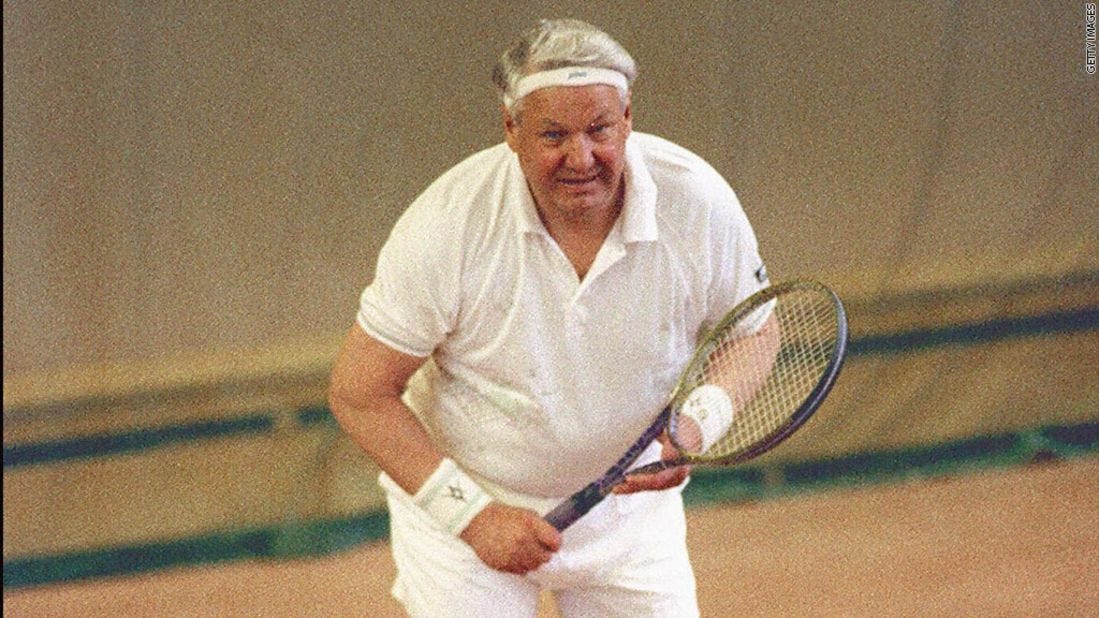Yeltsin's Grand Slam Scandal
Boris Yeltsin’s tennis revolution shared similar characteristics to his other ventures: nepotism and corruption as a result of negligence.
Ahead of the U.S. Open final between Serbia’s Novak Djokovic and Russia’s Daniil Medvedev, I wanted to share this longform on the role that Boris Yeltsin—Russia’s first president after the collapse of the Soviet Union—played in the development of tennis in Russia throughout the 1990s, and how he laid the blueprint for modern sports diplomacy in the Russian Federation, a potent tool that would later be weaponized by his warmongering successor, Vladimir Putin.
During the mid-1990s, one could always find Boris Yeltsin serving up sets on a hard court in Moscow, usually between working hours. Depending on the weather, he’d likely be dressed in Wimbledon whites – shorts, headband and all – or a navy blue tracksuit with the Russian flag emblazoned across his chest.
Wilson racquet in-hand, the first president of the Russian Federation played with fierce passion and surprising stamina for a man of his generous proportions. Though plagued with health-related issues that limited his time on the tennis court, Yeltsin gave the impression of a man who never let go of his glory days as a Soviet volleyball professional – someone who was far happier as a sportsman.
Apart from being in stark contrast to the suited officials of Soviet pastime, the powerful imagery of the president wielding a tennis racquet altered the public’s perception of the sport in the post-Soviet space. Tennis, once considered feminine, foreign, and bourgeois, was now mainstream and culturally acceptable. As someone who who witnessed first-hand how politicians utilize sports as as a form of soft power during various trips to Russia, I was fascinated by Yeltsin’s unique influence on the sport and whether he potentially used it to endear himself to the public during difficult times.
“From the moment when Yeltsin publicly came out in shorts and with a racket in his hand, tennis began to be treated as good as football and hockey. Queues at the semi-finals and finals of the ‘Kremlin Cup’ at the ticket boxes resembled those long lines from the Soviet Union when people wanted to go Lenin’s mausoleum,” said Viktor Chervyakov, renowned sports journalist for Russian outlets MK and Championat who was one of the many curious spectators intrigued by the sport at the time that I managed to speak with. “People just wanted to watch the game and the stadium was packed. It was all due to Yeltsin. Everyone wanted to share the interests of the President, to feel elite in an elite sport.”



